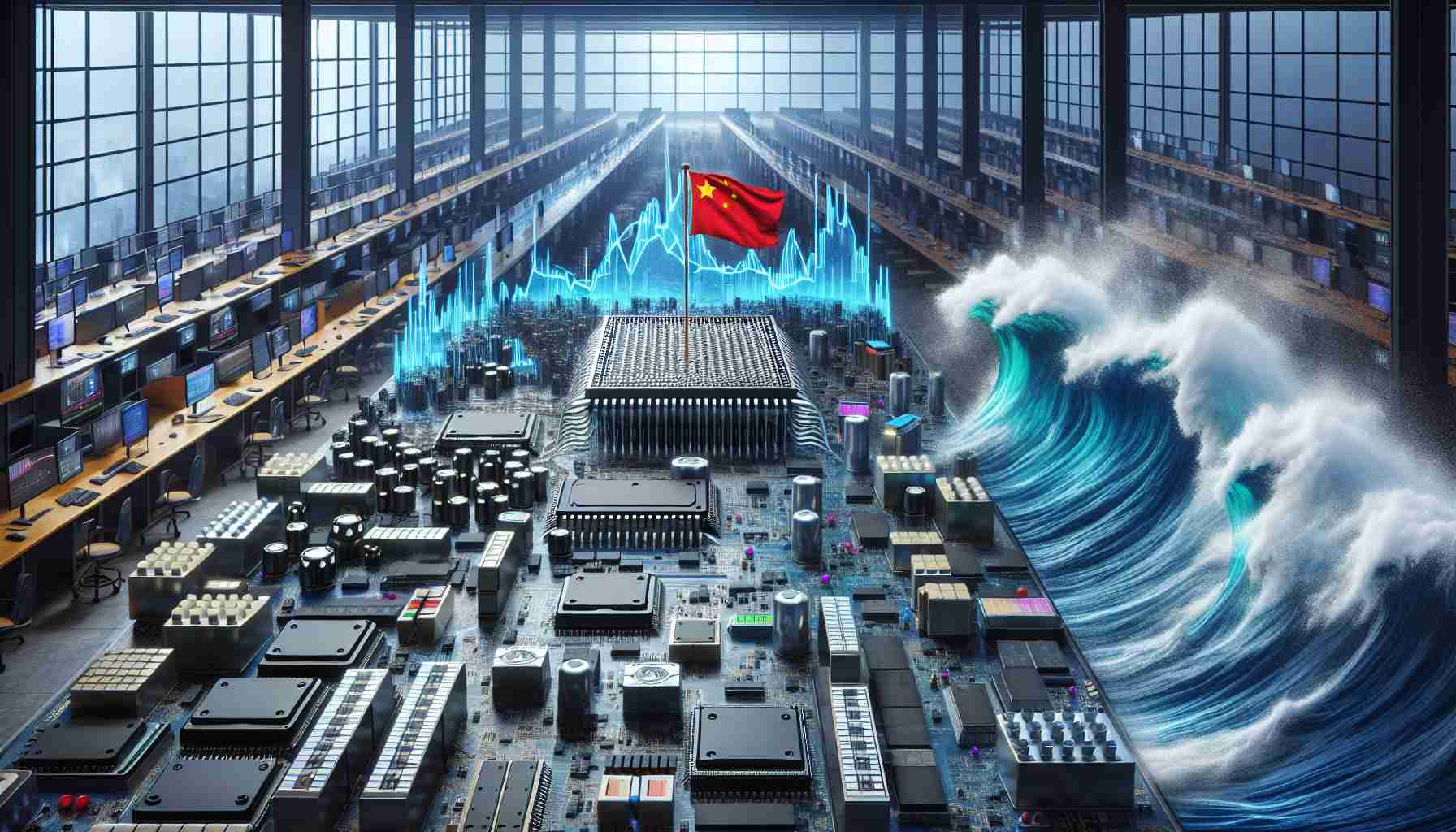Confronting an Economic Hurdle in Semiconductor Self-Sufficiency
As China grapples with its slowing economy and hurdles in the real estate sector, questions arise about its ability to sustain strategic subsidies that fuel its ambition for a domestic semiconductor ecosystem. The complexity of the semiconductor industry is noted, underscoring doubts on the feasibility of a single country fully realizing the production spectrum from materials to final chip manufacturing.
Intel’s Foundry Challenges and the Wait for Profitability
In the face of a competitive semiconductor landscape, Intel’s foundry service is projected to reach a break-even point no earlier than three years into the future. The tech giant continues to rely on Taiwan Semiconductor Manufacturing Company (TSMC) for its advanced chip production, indicative of strategic partnerships amid fiscal concerns reflected in Intel’s recent unsatisfactory earnings report.
Huawei’s Comeback Unlikely to Shake Qualcomm and MediaTek
The reemergence of Huawei in China’s smartphone market has been notable; nonetheless, leading chip suppliers, Qualcomm and MediaTek, remain unshaken. These companies perceive Huawei’s progress as a limited threat to their system-on-chip (SoC) business, despite Huawei’s advances and efforts to innovate using its in-house chip capabilities.
Sharp’s Prospective Entry into India’s Display Manufacturing Sector
Sharp is reportedly in discussions to make a multi-billion dollar investment in India’s very first display manufacturing facility, a venture that could potentially benefit from the country’s semiconductor incentive schemes.
Intel’s AI Market Struggles Against Nvidia’s Dominance
Despite ambitious plans in the artificial intelligence (AI) accelerator market, Intel’s AI revenue forecasts significantly lag behind Nvidia’s overwhelming market lead. Intel’s broader foundry business targets for the next decade also trail the financial expectations set by heavyweight manufacturers like TSMC and Samsung Foundry.
Revitalization of the Chinese Smartphone Market
The Chinese smartphone arena is witnessing vibrant activity with Huawei registering a remarkable performance since overcoming U.S. sanctions. The dynamism observed within brands like Xiaomi, Vivo, and Oppo contributes to an optimistic outlook for handset demand throughout the year.
US Investigation into China’s RISC-V Engagement Affects Industry Players
A US Department of Commerce investigation into China’s involvement with RISC-V international association could impact RISC-V’s integration in Samsung’s AI chip development programs. Any consequent regulations have the potential to affect a wide array of global tech firms associated with RISC-V’s development community.
China’s Path to Chip Independence Amid Global Challenges
China’s quest for semiconductor independence is deeply entangled in the narrative of global tech competition and strategic autonomy. Amid ever-heightening tensions and trade conflicts, particularly with the United States, China has accelerated its effort to develop a self-sufficient chip industry. This push is motivated by several concerns, most crucially the vulnerability of being reliant on foreign sources for semiconductors, which are indispensable in modern electronics, from smartphones to military hardware.
Questions and Answers:
– Can China achieve semiconductor self-sufficiency? China’s path to semiconductor self-sufficiency is fraught with significant challenges, including mastering advanced technologies, securing intellectual property rights, and developing a skilled workforce. While progress is being made, achieving self-sufficiency will be a long and arduous process.
– What are the hurdles facing Intel’s foundry services? Intel’s foundry services face stiff competition, particularly from established players like TSMC and Samsung. Achieving profitability will require significant investments in technology and capacity, which presents a considerable financial risk.
– Will Huawei’s advances affect Qualcomm and MediaTek’s market share? Huawei’s comeback in the chip market is a development worth watching, but it is unlikely to immediately threaten the positions of established SoC players like Qualcomm and MediaTek due to their market dominance and extensive global partnerships.
Key Challenges:
– Technological Catch-up: The semiconductor manufacturing process is incredibly sophisticated, and China must address a technology gap to catch up with industry leaders like the United States, South Korea, and Taiwan.
– Supply Chain Security: Establishing a secure and reliable supply chain for raw materials and specialized equipment is vital for developing a self-reliant semiconductor industry.
– Intellectual Property: China faces allegations of intellectual property theft. Building its semiconductor industry on locally developed IP will be crucial to avoid international disputes and sanctions.
– Talent Acquisition: Developing an internal talent pool with expertise in semiconductor design and manufacturing is critical and currently a bottleneck for China.
Controversies:
– Trade Tensions: International tensions, especially between China and the United States, loom large, with the U.S. imposing restrictions on Chinese tech firms and China seeking to circumvent these barriers.
– Security Concerns: The global nature of the semiconductor supply chain raises concerns about the security and integrity of technology, where issues of trust play a pivotal role.
Advantages and Disadvantages:
– Advantages of China’s push for chip independence include increased national security and economic resilience, the potential to drive innovation, and reduced exposure to international supply chain disruptions.
– Disadvantages include high costs and resource allocation, the risk of duplicating international efforts, and the possibility of escalating trade tensions leading to further restrictions.
For those interested in learning more about these topics at a broader level, you may find these links to the main websites useful:
– Intel
– Huawei
– Qualcomm
– MediaTek
– Sharp
– Nvidia
– TSMC
– Samsung
